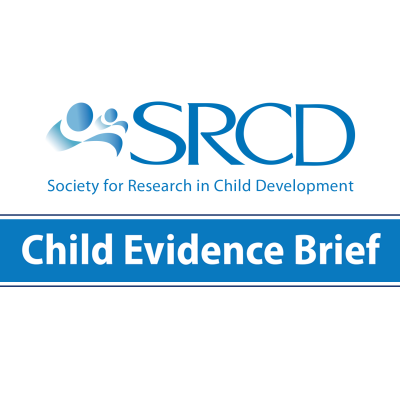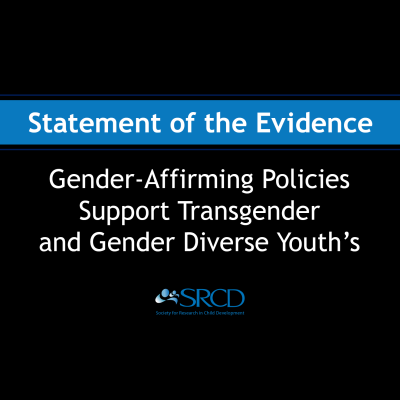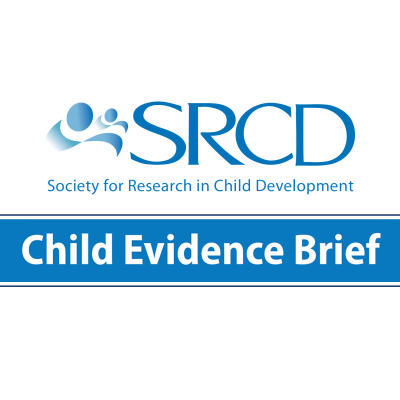Questioning Unaccompanied Immigrant Children: Lessons from Developmental Science on Forensic Interviewing
Authors
- Jodi A. Quas, Ph.D., Department of Psychological Science, University of California, Irvine
- Thomas D. Lyon, J.D., Ph.D., Gould School of Law, University of Southern California
The challenges of dealing with the influx of immigrant children at the United States' borders are profound. Approximately 5,000 to 10,000 unaccompanied children, including many young adolescents, arrive each month at the southwestern border.1 To determine whether these children will be given safe haven in the United States, authorities question them about their origins and family background, traveling companions, decision-making competency, history of abuse and violence exposure, and risk of being smuggled and trafficked. In this context, children are at significant risk of reporting their experiences incompletely or inaccurately, which can affect life-altering decisions about their immigration status. Decades of scientific research have demonstrated how to interview children to obtain accurate and complete reports of their experiences, competencies, and attitudes. This evidence highlights the critical need for clear protocols regarding when and how children should be interviewed, including how questions should be phrased. Research also points to the necessity for extensive training of professionals who conduct the interviews.
TABLE 1. Topics About Which Immigrant Children May Be Questioned36-39
- Age and country of origin
- Relationship to the adults or others with whom they are traveling
- Appropriate caregivers who can take care of youth while a case is being processed
- Pressing physical or mental health needs
- Whether youth have a credible fear (defined as a “significant possibility”) of persecution based on their race, religion, nationality, social group, or political opinion
- History of having been smuggled or trafficked
- Level of risk for trafficking or exploitation (before or after entry to the U.S.)
- Experiences as a victim of abuse by parents
- If from a contiguous country, competency to waive entry (i.e., whether youth are capable of expressing a desire to withdraw their application for admission and be returned to their home country)
Why Immigrant Children Are at High Risk for Reluctance, Incomplete Reporting, and Errors
Multiple experiential and motivational factors contribute to nondisclosure, recantations, and incomplete reports in victimized children. All these factors are likely exacerbated in immigrant children.
- Children often fail to disclose victimization because they are afraid of the consequences to themselves or their family of divulging information to the authorities.2,3
- Many children are ashamed, embarrassed, and blame themselves for victimization, or do not recognize their victimization as such, decreasing their willingness to tell.4,5
- Children are often unclear about the goals of an interview and the legal significance of their responses, leading them to omit relevant details.2,6,7
- Language and cultural barriers amplify children’s fear andconfusion, further inhibiting their openness.8,9
Stress at the time of the interview exerts a powerful negative effect on children’s reports of prior experiences.
- Many immigrant children suffer from high levels of stress due to trauma suffered in their home country (e.g., sexual abuse, witnessing rape or murder) or during their journey to the U.S. (e.g., abduction, being held for ransom, trafficking), and their experiences once apprehended (e.g., parental separation, interactions with unfamiliar authority figures).10,11
- High stress when responding to adults’ questions undermines children’s ability to communicate, impairs their memory, and increases their suggestibility.12-14
- Uncertainty about the future and lack of parental support further reduce children’s communicativeness.10,15
The way interviewers question children can inhibit their willingness to report information and increase the risk of errors and omissions in their reports.
- Adults typically rely on overly direct approaches to obtain information from children, without first establishing proper rapport or offering support.16
- Direct questioning and lack of support reduce children’s willingness to disclose, accuracy, elaborations on their responses, and perceived credibility.17,18
- Interviewers commonly respond to initial reluctance in children with unsupportive and coercive behavior, which further exacerbates children’s reluctance.7,19
What Can Be Done to Increase Immigrant Children’s Responsiveness in Interviews and Obtain Accurate and Complete Reporting
Maintaining a warm and supportive environment throughout an interview is key to building trust, increasing children’s likelihood of disclosure, and enhancing the accuracy of what they report.20,21
- Multiple or extended interactions between interviewers and children can increase children’s familiarity, comfort, and informativeness.22
- Verbal support throughout an interview, which includes calling children by their names, back-channeling (e.g., “uh-huh”), and using verbal encouragements (e.g., “You are helping me understand”), can increase children’s informativeness.23
- Nonverbal support, which includes smiling, sitting close to children, having an open body posture, and wearing casual attire, can further put children at ease.20
Making introductory comments and building rapport before asking about substantive topics establish interviewers’ expectations and enhance children’s informativeness.24-26
- Instructing children that it is okay to say “I don’t know” and “I don’t remember” can increase accuracy.26
- Emphasizing an interviewer’s lack of knowledge and encouraging children to correct the interviewer’s misstatements can reduce suggestibility.26
- Eliciting a promise to tell the truth can increase honesty.25,27
- Engaging children in discussing positive and neutral experiences using open-ended prompts (e.g., “Tell me about things you like to do”) before substantive questioning can increase informativeness.25,28
How questions are phrased significantly affects the completeness and accuracy of the information children provide.16,29
- Beginning with open-ended recall prompts (e.g., “Tell me about the people you were traveling here with”) minimizes suggestiveness and can elicit informative responses.18
- In contrast, beginning with closed-ended (e.g., yes/no and forced-choice) questions about negative topics (e.g., “Are you afraid of being returned to your home country?”) can elicit high rates of incomplete and false responses.30
- Asking questions about children’s attitudes (e.g., “How do you feel about going back?”) can elicit productive responses and valuable information.31,32
- When open-ended questions are unproductive, asking direct questions about sensitive information may be necessary;7 children’s responses should then be followed up with requests for elaboration (e.g., “Tell me more about that”).16
Experts trained in forensic interviewing and developmental psychology can interview children in ways that maximize their likelihood of providing complete and accurate responses.
- Interactive training with feedback, including role-playing and practice interviews, can increase interviewers’ use of developmentally-appropriate questioning.33
- Refresher courses are needed to maintain best practices over time.34
- Training in developmental psychology can facilitate interviewers’ ability to interact with children and adolescents across wide age ranges (including training in age-related changes in memory and children’s motivation for disclosing information, as well as in risk for abuse, trafficking, and trauma).35
- Child Advocacy Centers, social-service supported agencies that centralize identification and intervention services for maltreated children and employ highly trained and experienced forensic interviewers, provide a valuable model for conducting specialized interviews.35
The conditions under which unaccompanied immigrant children are interviewed, combined with children’s high levels of stress and interviewers’ inadequate training, increase the likelihood of interviewers using counterproductive questioning techniques and children providing incomplete or misleading responses. Research on interviewing provides evidence-based guidance on how to create a developmentally appropriate, supportive context and phrase questions in a way that maximizes the completeness and accuracy of children’s disclosures. By following this guidance, professionally trained interviewers can obtain information from children necessary to inform immigration decisions that profoundly influence their futures.
Endnotes / References
(1) U.S. Department of Homeland Security. (2019). Southwest border migration FY2019. Retrieved August 5, 2019, from https://www.cbp.gov/newsroom/stats/sw-border-migration
(2) Lev-Wiesel, R., Gottfried, R., Eisikovits, Z., & First, M. (2014). Factors affecting disclosure among Israeli children in residential care due to domestic violence. Child Abuse & Neglect, 38, 618-626. https://doi.org/10.1016/j.chiabu.2014.02.002
(3) Alaggia, R., Collin-Vézina, D., & Lateef, R. (2017). Facilitators and barriers to child sexual abuse (CSA) disclosures: A research update (2000-2016). Trauma, Violence, & Abuse, 20, 260-283. https://doi.org/10.1177/1524838017697312
(4) Hershkowitz, I., Horwitz, D., & Lamb, M. E. (2007). Individual and family variables associated with disclosure and non-disclosure of abuse in Israel. In M.-E. Pipe, M. E. Lamb, Y. Orbach, & A.-C. Cederborg (Eds.), Child sexual abuse: Disclosure, delay, and denial (pp. 63-76). New York, NY: Routledge.
(5) Paine, M.L., & Hansen, D.J. (2002). Factors influencing children to self-disclose sexual abuse. Clinical Psychology Review, 22, 271-295. https://doi.org/10.1016/S0272-7358(01)00091-5
(6) Schaeffer, P., Leventhal, J. M., & Asnes, A. G. (2011). Children's disclosures of sexual abuse: Learning from direct inquiry. Child Abuse & Neglect, 35, 343-352. https://doi.org/10.1016/j.chiabu.2011.01.014
(7) Ahern, E. C., Hershkowitz, I., Lamb, M. E., Blasbalg, U., & Karni-Visel, Y. (2019). Examining reluctance and emotional support in forensic interviews with child victims of substantiated physical abuse. Applied Developmental Science, 23, 227-238. https://doi.org/10.1080/10888691.2017.1387057
(8) Fontes, L.A., & Plummer, C. (2010). Cultural issues in disclosures of child sexual abuse. Journal of Child Sexual Abuse, 19, 491-518. https://doi.org/10.1080/10538712.2010.512520
(9) Malloy, L. C., Sutherland, J. E., Rodriguez-Steen, L., & Quas, J. A. (in press). Does race, ethnicity, and culture shape the experience and disclosure of child sexual abuse? In M. Stevenson, B. L. Bottoms, & K. Burke (Eds.), The legacy of race for children: Psychology, public policy and law. London, England: Oxford University Press.
(10) NeMoyer, A., Rodriguez, T., & Alvarez, K. (2019). Psychological practice with unaccompanied immigrant minors: Clinical and legal considerations. Translational Issues in Psychological Science, 5, 4-16. http://dx.doi.org/10.1037/tps0000175
(11) U.S. Department of Health and Human Services (2019). Care provider facilities described challenges addressing mental health needs of children in HHS custody. Retrieved October 8, 2019 from https://oig.hhs.gov/oei/reports/oei-09-18-00431.pdf
(12) Goodman, G. S., Taub, E. P., Jones, D. P. H., England, P., Port, L. K., Rudy, L., . . . Melton, G. B. (1992). Testifying in criminal court: Emotional effects on child sexual assault victims. Monographs of the Society for Research in Child Development, 57, 1-159. doi:10.2307/1166127
(13) Shields, G. S., Sazma, M. A., McCullough, A. M., & Yonelinas, A. P. (2017). The effects of acute stress on episodic memory: A meta-analysis and integrative review. Psychological Bulletin, 143, 636-675. http://dx.doi.org/10.1037/bul0000100
(14) Quas, J. A., & Klemfuss, J. Z. (2014). Physiological stress reactivity and episodic memory in children. In R. Fivush & P. J. Bauer (Eds.), Handbook of memory (Vol. 2, pp. 688-708). Oxford, England: Oxford University Press.
(15) Kennedy, E.G. (2013). Unnecessary suffering: Potential unmet mental health needs of unaccompanied alien children. JAMA Pediatrics, 167, 319-320. doi:10.1001/jamapediatrics.2013.1382
(16) Lamb, M. E., Brown, D., Hershkowitz, I., Orbach, Y., & Esplin, P. (2018). Tell me what happened: Structured investigative interviews of child victims and witnesses (Vol. 2). Hoboken, NJ: John Wiley & Sons.
(17) Hershkowitz, I., Lamb, M. E., Katz, C., & Malloy, L. C. (2015). Does enhanced rapport-building alter the dynamics of investigative interviews with suspected victims of intra-familial abuse? Journal of Police Criminal Psychology, 30, 6-14. doi:10.1007/s11896-013-9136-8
(18) Saywitz, K. J., Lyon, T. D., & Goodman, G. S. (2017). When interviewing children: A review and update. In J. B. Klika & J. R. Conte (Eds.), The APSAC handbook on child maltreatment (4th ed., pp. 310-329). Thousand Oaks, CA: Sage.
(19) Hershkowitz, I., Orbach, Y., Lamb, M. E., Sternberg, K. J., & Horowitz, D. (2006). Dynamics of forensic interviews with suspected abuse victims who do not disclose abuse. Child Abuse & Neglect, 30, 753-769. https://doi.org/10.1016/j.chiabu.2005.10.016
(20) Saywitz, K. J., Wells, C. R., Larson, R. P., & Hobbs, S. D. (2016). Effects of interviewer support on children’s memory and suggestibility: Systematic review and meta-analyses of experimental research. Trauma, Violence, & Abuse, 20, 22-39. https://doi.org/10.1177/1524838016683457
(21) Bottoms, B. L., Quas, J. A., & Davis, S. (2007). The influence of interviewer-provided social support on children’s suggestibility, memory, and disclosures. In M.-E. Pipe, M. E. Lamb, Y. Orbach, & A.-C. Cederborg (Eds.), Child sexual abuse: Disclosure, delay, and denial (pp. 135-158). New York, NY: Routledge.
(22) La Rooy, D., Katz, C., Malloy, L. C., & Lamb, M. E. (2010). Do we need to rethink guidance on repeated interviews? Psychology, Public Policy, and Law, 16, 373-392. doi:10.1037/a0019909
(23) Olaguez, A. P., Castro, A., Cleveland, K. C., Klemfuss, J. Z., & Quas, J. A. (2018). Using implicit encouragement to increase narrative productivity in children: Preliminary evidence and legal implications. Journal of Child Custody, 15, 286-301. https://doi.org/10.1080/15379418.2018.1509758
(24) Saywitz, K. J., Larson, R. P., Hobbs, S. D., & Wells, C. R. (2015). Developing rapport with children in forensic interviews: Systematic review of experimental research. Behavioral Sciences and the Law, 33, 372-389. https://doi.org/10.1002/bsl.2186.
(25) Lyon, T.D. (2014). Interviewing children. Annual Review of Law and Social Science, 10, 73-89. https://doi.org/10.1146/annurev-lawsocsci-110413-030913
(26) Brubacher, S. P., Poole, D. A., & Dickinson, J. J. (2015). The use of ground rules in investigative interviews with children: A synthesis and call for research. Developmental Review, 36, 15-33. https://doi.org/10.1016/j.dr.2015.01.001
(27) Talwar, V., & Crossman, A. M. (2012). Children’s lies and their detection: Implications for child witness testimony. Developmental Review, 32, 337-359. https://doi.org/10.1016/j.dr.2012.06.004
(28) Sternberg, K.J., Lamb, M. E., Hershkowitz, I., Yudilevitch, L., Orbach, Y., Esplin, P. W., & Hovav, M. (1997). Effects of introductory style on children's abilities to describe experiences of sexual abuse. Child Abuse & Neglect, 21, 1133-1146. https://doi.org/10.1016/S0145-2134(97)00071-9
(29) Saywitz, K.J., & Comparo, L. (2013). Evidence-based child forensic interviewing. Oxford, England: Oxford University Press.
(30) Lyon, T.D., McWilliams, K., & Williams, S. (2019). Child witnesses. In N. Brewer & A. B. Douglass (Eds.), Psychological science and the Law (pp. 157-181). New York, NY: Guilford.
(31) Lyon, T. D., Scurich, N., Choi, K., Handmaker, S., & Blank, R. (2012). “How did you feel?”: Increasing child sexual abuse witnesses’ production of evaluative information. Law and Human Behavior, 36, 448-457. http://dx.doi.org/10.1037/h0093986
(32) Karni-Visel, Y., Hershkowitz, I., Lamb, M. E., & Blasbalg, U. (2019). Facilitating the expression of emotions by alleged victims of child abuse during investigative interviews using the Revised NICHD Protocol. Child Maltreatment, 24, 310-318. https://doi.org/10.1177/1077559519831382
(33) Lamb, M.E. (2016). Difficulties translating research on forensic interview practices to practitioners: Finding water, leading horses, but can we get them to drink? American Psychologist, 71, 710-718. http://dx.doi.org/10.1037/amp0000039
(34) Lamb, M. E., Sternberg, K. J., Orbach, Y., Hershkowitz, I., Horowitz, D., & Esplin, P. W. (2002). The effects of intensive training and ongoing supervision on the quality of investigative interviews with alleged sex abuse victims. Applied Developmental Science, 6, 114-125. https://doi.org/10.1207/S1532480XADS0603_2
(35) National Children’s Alliance. (2017). Standards for accredited members. Retrieved August 6, 2019, from https://www.nationalchildrensalliance.org/ncas-standards-for-accredited-members/.
(36) U.S. Department of Health and Human Services (2019). Office of Refugee Resettlement Unaccompanied Alien Children Program. Retrieved September 24, 2019 from https://www.acf.hhs.gov/orr/resource/unaccompanied-childrens-services.
(37) U.S. Citizenship and Immigration Services (2019). Special Immigrant Juvenile Status (SIJS). Retrieved September 24, 2019, from https://www.uscis.gov/green-card/sij.
(38) U.S. Citizenship and Immigration Services (2019). Credible fear screenings. Retrieved September 24, 2019, from https://www.uscis.gov/humanitarian/refugees-asylum/asylum/credible-fear-screenings.
(39) U.S. Department of State (2008). William Wilberforce Trafficking Victims Protection Reauthorization Act of 2008. Retrieved September 24, 2019, from https://www.state.gov/william-wilberforce-trafficking-victims-protection-reauthorization-act-of-2008/.


